As a BetterHelp affiliate, we receive compensation from BetterHelp if you purchase products or services through the links provided
Ketamine therapy has recently emerged as a promising treatment option for individuals suffering from severe mental illnesses, especially those who have tried other medications with little or no relief. Initially used as an anesthetic for both humans and animals, ketamine has gained interest due to its potential in alleviating symptoms of depression and other mental health disorders.
During ketamine therapy, patients may experience a range of sensations, from feeling no different to experiencing a sense of well-being or relaxation. Some individuals may also notice more pronounced effects during the treatment. It is important to note that the experience can vary from person to person. Still, ketamine’s effects are generally short-lived, with most people feeling relief in the days and weeks following the treatment session.
Key Takeaways
- Ketamine therapy is a potential treatment option for severe mental illnesses, especially for those who haven’t found success with other medications.
- Patients undergoing ketamine therapy may experience a range of sensations, from mild relaxation to more noticeable effects.
- The experience of ketamine therapy can vary, but its beneficial effects typically last for days or weeks after the treatment session.
 Understanding Ketamine
Understanding Ketamine
Ketamine is an anesthetic, initially used to sedate humans and pets during surgeries. In recent years, it has gained attention for its potential off-label uses in treating mental health conditions, especially depression. If you’re considering ketamine therapy, it’s essential to understand what the experience may feel like.
During ketamine therapy, patients can expect a range of sensations. These may include feelings of “floatiness,” drowsiness, and temporary alterations in the perception of time, sounds, or colors. Some people might also experience mild dizziness or nausea, particularly if they’ve had similar reactions to other medications.
Ketamine works by interacting with the NMDA receptor and glutamate in the brain. This interaction helps modulate pain perception and may contribute to its potential ability to alleviate certain mental health conditions. However, it’s important to note that ketamine is not FDA-approved for the treatment of depression or anxiety, so any use for these disorders is considered off-label.
While undergoing ketamine therapy, some side effects may occur. These can include anxiety, blurred vision, loss of appetite, mental confusion, elevated blood pressure or heart rate, and dry mouth. You must know these potential side effects and discuss any concerns with your healthcare provider.
In summary, ketamine therapy may provide relief for those suffering from severe mental health conditions who haven’t found success with other medications. The experience can vary, with sensations of floatiness and altered perceptions as common effects. If you’re considering ketamine therapy, ensure you have a thorough understanding of the potential side effects and keep in close communication with your healthcare professional.
 Ketamine Therapy Overview
Ketamine Therapy Overview
Ketamine therapy has become a groundbreaking option in mental health care, offering relief for individuals experiencing severe depression and other mental illnesses. This treatment, unlike traditional psychotherapy, involves the use of the dissociative anesthetic ketamine. Wondering if it’s right for you? Here’s what you need to know.
Ketamine therapy is typically prescribed to those who have tried other medications and treatments without success. It improves your brain’s neuroplasticity, which can profoundly affect your mental well-being. The treatment is available in various forms, such as intravenous (IV) infusion, nasal spray, or oral medication.
During ketamine therapy, you might experience a sensation of dissociation. This means that you could feel detached from your surroundings, your body, and even your thoughts. As the ketamine takes effect, your mind may open up to new perspectives, allowing you to process emotions and memories better. Some people describe this experience as dreamlike or even psychedelic. It’s essential to be prepared and understand that these sensations are a part of the treatment process.
Now that you’re aware of the basics of ketamine therapy, it’s crucial to consider whether it’s a suitable option for you. Consult with your mental health care provider, who can assess your needs and guide you through this decision. Should you embark on ketamine therapy, approach it with an open mind and trust that it could be a turning point in your mental health journey.
Method of Administration
When it comes to ketamine therapy, there are various methods of administration available for patients. Selecting the right method can be essential for the success of the treatment. Here are some of the most common routes of administering ketamine:
- Intravenous (IV) infusion: This is the most frequent method for providing ketamine therapy. A drip or intravenous infusion delivers a controlled dose of ketamine directly into the bloodstream. It allows for quicker and more precise dosage adjustments, making it a preferred option.
- Intramuscular (IM) injections: Ketamine can also be administered through intramuscular shots. This method involves injecting the drug directly into a muscle, such as the thigh or upper arm. While the onset of effects might be slightly slower than IV, it is still an effective way to receive treatment.
- Nasal spray: The FDA has approved a nasal spray form of ketamine called esketamine for patients with treatment-resistant depression. Intranasal administration is done by spraying the medication into the nostrils, allowing it to be absorbed through the nasal mucosa. This method is non-invasive and provides rapid relief for many patients.
- Oral intake: Ketamine can also be taken orally as tablets or lozenges. While this method might be more comfortable and convenient for some patients, it has a slower onset of effects compared to other routes of administration.
The choice of method will depend on your specific needs and your healthcare professional’s recommendations. It’s important to discuss these options with your doctor and follow their guidance to achieve the best possible results from your ketamine therapy. Remember to consider safety and precautions while undergoing treatment, and be prepared for individualized adjustments based on your unique experiences.
 Uses of Ketamine in Therapy
Uses of Ketamine in Therapy
Ketamine, originally an anesthetic, has emerged as a potential treatment for various mental health conditions and chronic pain. In therapy, ketamine has shown promising results for people dealing with depression, treatment-resistant depression, anxiety, post-traumatic stress disorder (PTSD), obsessive-compulsive disorder (OCD), and more. Let’s explore its therapeutic applications and impact on some of these conditions:
- Depression and treatment-resistant depression: Ketamine works quickly to alleviate symptoms of depression, making it especially useful for those who haven’t responded well to traditional antidepressants. The effects are sometimes felt within hours or days instead of weeks or months, like other antidepressants.
- Anxiety: Research indicates that ketamine may help reduce anxiety symptoms in individuals with general anxiety disorder and social anxiety disorder. Its fast-acting nature can provide relief during acute anxiety episodes and contribute to long-term improvement.
- PTSD: Ketamine’s dissociative effects can help people with PTSD process traumatic memories in a safe and controlled environment. Some studies have shown that it may reduce the intensity and frequency of PTSD symptoms, making it easier for patients to engage in therapy and improve their quality of life.
- OCD: Ketamine is being investigated as a possible treatment for OCD due to its ability to alleviate obsessive thoughts and compulsive behaviors rapidly. It may also help improve the efficacy of cognitive-behavioral therapy by fostering a more flexible and receptive mindset.
Ketamine’s impact on mental health conditions is mainly attributed to its role as an NMDA receptor antagonist, believed to improve the brain’s neuroplasticity and promote the growth of new neural connections. This results in a more stable mood, diminished pain perception, and better overall mental health. However, it is important to remember that ketamine therapy isn’t a one-size-fits-all solution and may not suit everyone. Consult a professional to determine if it may benefit your situation.
The Experience of Ketamine Therapy
Ketamine therapy can be a unique and life-changing experience for many individuals. Here’s what you can expect during a session.
One of the first sensations you might experience is a feeling of deep relaxation. Ketamine helps quiet the mind, letting you let go of stress and tension. This can be particularly beneficial for those struggling with anxiety or depression.
Another common aspect of ketamine therapy is the feeling of dissociation. Dissociation often takes on the form of an out-of-body experience. You may feel detached from your physical self and surroundings, giving you a different perspective on your thoughts and emotions. This can help break negative thought patterns and promote a sense of self-compassion.
It’s also possible to experience a psychedelic high during ketamine therapy. This might include heightened colors, visual effects, and increased emotional sensitivity. While some people find this aspect enjoyable, it’s essential to remember that the primary focus of the therapy is your mental health and well-being.
Keep in mind that ketamine therapy is highly individual, and your experience may differ from others. Some people may feel more effects than others, and your response to the treatment can change from session to session. The most crucial aspect is approaching the therapy with an open mind and a willingness to explore your inner thoughts and emotions.
Benefits of Ketamine Therapy
Ketamine therapy offers a range of benefits, especially for those who haven’t found relief with traditional antidepressants. Here are some key advantages:
- Fast-acting antidepressant: Unlike most antidepressants, which can take weeks to show improvements, ketamine’s effects can often be felt within hours. This rapid response can be life-changing for individuals suffering from severe, debilitating depression.
- Therapeutic potential for various mental health conditions: Apart from depression, ketamine therapy has shown promise in treating conditions such as PTSD, OCD, bipolar depression, anxiety, and eating disorders.
- Neuroplasticity enhancement: Ketamine is believed to improve the brain’s neuroplasticity, contributing to its antidepressant effects. This increased capacity for brain adaptation may help facilitate healing from mental health issues.
- Alternative to conventional treatments: For those who have tried and failed with traditional treatment options, ketamine therapy can offer a new avenue to explore. Its unique mode of action might provide relief where other methods haven’t.
Remember, ketamine therapy is not for everyone. It’s essential to consult your healthcare professional to determine whether it’s appropriate and safe for your situation. Nonetheless, understanding the potential benefits can help you make a more informed decision about exploring this innovative treatment option.
 Possible Side Effects
Possible Side Effects
Ketamine therapy may provide relief for some, but it’s essential to be aware of the possible side effects that could occur during treatment.
- Nausea and dizziness: You may experience nausea or dizziness during or after your ketamine therapy session. This is a common reaction and should generally subside within a few hours.
- Pain and headaches: Some people may feel headaches or a reduced pain sensation during ketamine therapy. This is usually temporary; you should feel normal a few hours after the session.
- Drowsiness and confusion: It’s important to note that ketamine therapy may cause temporary drowsiness and confusion. Make sure to give yourself ample time to recover after a session, as these effects can last for a short period.
- Altered perceptions: Ketamine may cause changes in your sensory perceptions, including visual or auditory hallucinations. You might feel detached from yourself, your surroundings, or your environment briefly.
- Psychosis: In rare cases, ketamine therapy may lead to the onset of psychosis. This is uncommon, but it’s essential to be aware of this potential risk and discuss it with your healthcare provider.
Remember, it’s crucial to communicate with your doctor or healthcare provider about any concerns or questions you have about ketamine therapy and its potential side effects. By staying informed and maintaining open communication, you can better navigate the process and determine if this treatment option is right for you.
Risks and Safety Measures
Ketamine therapy is often considered a promising treatment for various mental health conditions like treatment-resistant depression and anxiety disorders. However, awareness of the risks and safety measures is essential to ensure a positive experience. Here are some factors to consider:
Blood Pressure and Heart Rate: Ketamine therapy may cause a temporary increase in blood pressure and heart rate. If you have a history of high blood pressure or heart-related issues, it’s crucial to inform your healthcare provider to manage these potential side effects.
Liver and Kidney Functions: Ketamine is metabolized in the liver and excreted through the kidneys, so monitoring your liver and kidney functions during treatment is essential. If you have any pre-existing liver or kidney issues, discuss this with your healthcare provider.
Bladder Issues: High doses or long-term use of ketamine have been associated with bladder problems like inflammation or increased urinary frequency. Although this risk is low during controlled, low-dose treatment, it’s essential to be aware of this potential side effect and monitor any changes in urinary habits during therapy.
Psychosis and Mania: In some cases, ketamine may trigger symptoms of psychosis or mania, especially if you have a history of schizophrenia, bipolar disorder, or other related conditions. Inform your healthcare provider of any mental health diagnoses to evaluate the risk and develop a safe treatment plan.
Addiction Potential: Ketamine has a potential for addiction, although this risk is considered lower during supervised, low-dose therapy. To minimize the risk of dependence, it’s essential to follow your healthcare provider’s guidance and maintain open communication about your treatment progress.
To ensure a safe and effective ketamine therapy experience, it’s crucial to work with a qualified healthcare provider who can evaluate your risk factors and tailor the treatment to your specific needs. Stay informed about the potential risks and actively communicate with your healthcare team to make the most of your ketamine therapy journey.
FDA’s Stance and Clinical Trials
The FDA has been open to exploring the potential benefits of ketamine for treating mental health conditions, especially in the form of esketamine. In 2019, the FDA approved esketamine (brand name: Spravato) as a nasal spray for treatment-resistant depression. This marked a significant milestone in recognizing the potential of ketamine in the field of mental health.
When it comes to clinical trials, the majority have focused on ketamine’s effects on mood disorders, such as unipolar and bipolar depression, suicidal ideation, post-traumatic stress disorder (PTSD), and obsessive-compulsive disorder (OCD). These trials have demonstrated promising results, as ketamine has been shown to provide rapid-acting relief from depressive symptoms that can last for weeks or even months.
However, the FDA has also acknowledged the potential risks associated with ketamine therapy, which is why they put forth specific guidelines. For instance, FDA-approved esketamine treatments must be monitored in structured clinical settings due to potential psychomimetic (producing effects similar to psychosis) and cardio-stimulating effects. This precaution ensures the safety of patients receiving the treatment.
It’s important to note that while esketamine has been approved, other forms of ketamine therapy are still considered off-label. This means that these treatments are not sanctioned by the Food and Drug Administration (FDA), but can be prescribed by clinicians as deemed appropriate. As research progresses, there will likely be further advancements and developments in ketamine therapy regulation and approval.
As you consider ketamine therapy, keep in mind the FDA’s stance and ongoing clinical trials. It’s crucial to be informed and remember that although there have been positive results, different individuals could have unique experiences when partaking in this treatment.
Perspectives of Experts
From the viewpoints of experts, ketamine therapy has been seen as a promising treatment for depression and other mental health disorders. Psychiatrists, in particular, have been intrigued by this therapy’s potential benefits. However, it is essential to remember that it may not be a miraculous solution for everyone.
Some experts, such as Gerard Sanacora from the Yale School of Medicine, recognize that ketamine can be “lifesaving” for certain patients. At the same time, they also emphasize that questions remain about its application, such as the optimal dosing, the ideal mode of delivery, the range of disorders it may help, and its long-term safety.
When it comes to the experience of ketamine therapy, the process may vary depending on the clinical setting and the patient’s needs. Generally, there are two main approaches:
- Low-dose ketamine with talk therapy: The focus is on combining a low dose of ketamine with talk therapy. Patients may feel relaxed and more open to exploring their thoughts and feelings during the session.
- Higher-dose ketamine with a psychedelic experience: In this approach, slightly higher ketamine doses may lead to psychedelic experiences. While there is less focus on talk therapy during the session, it can promote profound insights and long-lasting effects on mental well-being.
Experts in the field are still researching the predictors of ketamine treatment response in patients with major depressive disorder. It is crucial to consult with a mental health professional to determine if ketamine therapy may be suitable for your unique situation.
To sum it up: Ketamine therapy might offer relief for some patients. Experts recognize its potential but emphasize the need to be cautious and consider questions about its usage and safety. The therapy can be tailored to meet a patient’s needs in clinical settings, where professional guidance is provided throughout the process.
 Ketamine in the Context of Mental Health
Ketamine in the Context of Mental Health
Ketamine has been traditionally known as an anesthetic and analgesic. However, it’s gaining significant attention for its potential in treating various mental health conditions. Here, we’ll explore how ketamine therapy can benefit individuals with depression, anxiety, PTSD, and OCD.
In recent years, sub-anesthetic doses of ketamine have shown promising results in alleviating symptoms of depression. This treatment could benefit people who haven’t found relief with other medications. Not only does ketamine therapy offer rapid antidepressant effects, but it can also have sustained benefits for those struggling with severe depression.
Anxiety disorders can also be alleviated by ketamine therapy. When other treatments seem insufficient, ketamine therapy may provide the solace you’re seeking. Its fast-acting properties help reduce anxiety symptoms, leading to improved mental well-being and functioning.
Post-traumatic stress disorder (PTSD) is another mental health condition that may respond positively to ketamine therapy. Studies have demonstrated that this treatment can help alleviate PTSD symptoms, giving patients a new perspective on their experiences and emotions.
Obsessive-compulsive disorder (OCD) is a challenging condition to treat, but ketamine therapy may offer hope. As research progresses, ketamine therapy may become an essential part of psychiatry, offering a novel approach to addressing these disorders.
So, what should you expect from ketamine therapy? Initially, patients may experience dissociative or psychedelic effects, lending a mind-opening perspective to the therapy process. Over time, these short-term effects may dissipate, leaving a greater sense of emotional clarity and reduced mental health symptoms.
Key takeaway: Ketamine therapy has shown promising results in treating various mental health conditions, including depression, anxiety, PTSD, and OCD. Though further research is needed, it could become an essential tool in psychiatry.
Conclusion
Experiencing ketamine therapy can be pretty unique and varies from person to person. For many, the sensations during treatment can include feeling floaty, with some mild distortions in the perception of the size and proportion of body parts. This usually lasts for around 20 to 30 minutes, dissipating as the effects of the drug wear off.
Remember, ketamine therapy is not for everyone, and it’s essential to consult with a mental health professional before considering it as a treatment option. It has shown promising results for those struggling with treatment-resistant depression, anxiety, and PTSD, but proper evaluation is necessary.
As you explore the possibility of ketamine therapy, keep in mind that it’s just one of many possible treatments. It’s crucial to weigh the pros and cons and to work closely with a healthcare professional to determine the most appropriate course of action for your unique situation. Stay informed, be open to new possibilities, and prioritize your well-being.
Frequently Asked Questions
What is the experience like during ketamine therapy?
During ketamine therapy, you might experience sensations such as dissociation, visual and auditory distortions, and a feeling of detachment from your body. Some people describe the experience as dreamlike or surreal. However, everyone’s experience may vary. It’s essential to have a trained professional to monitor and support you throughout the session.
How does one feel after a ketamine treatment?
After a ketamine treatment, you might feel relaxed, with a greater sense of clarity and emotional connection. However, side effects such as dizziness, nausea, and fatigue are possible. Make sure to give yourself enough time to recover and regain your bearings after each session.
Does ketamine therapy provide immediate relief?
Ketamine therapy can provide immediate relief for some individuals, particularly for those struggling with treatment-resistant depression. While it might not work for everyone, many people report significant improvements in their mood and well-being after just a single session. Communicate with your healthcare provider to monitor your progress and adjust treatment.
What are common sensations felt during ketamine infusion?
During a ketamine infusion, you may experience:
- A feeling of floating or being detached from your body
- Visual and auditory distortions or hallucinations
- A dreamlike or out-of-body experience
- Altered perception of time and space
- Increased introspection and emotional sensitivity
Expect these sensations to be temporary and subside once the treatment is over.
Can ketamine therapy affect mood and emotions?
Ketamine therapy has been shown to positively affect mood and emotions, often by reducing symptoms of depression, anxiety, and PTSD. However, discussing any concerns or emotional changes with your healthcare provider is important, as the effects can vary between individuals.
How long do the effects of ketamine therapy last?
The effects of ketamine therapy can last anywhere from a few days to several weeks, depending on the individual and the specific treatment plan. Additional sessions or long-term treatment plans may be necessary to maintain the therapeutic benefits. Talk to your healthcare provider to determine the best course of action for your situation.
Key takeaway: Ketamine therapy can provide relief for various mental health conditions, but everyone’s experience may differ. Speak with a healthcare professional to discuss whether ketamine therapy might be suitable for you and set realistic expectations for the treatment outcomes.
- 7 Ideas to Help You Relax and Unwind on a Family Vacation - April 27, 2025
- How Having Cybersecurity Protection Helps You Relax - April 25, 2025
- 8 Reasons Why Spending Time Outside Calms You Down - April 25, 2025
This site contains affiliate links to products. We will receive a commission for purchases made through these links.

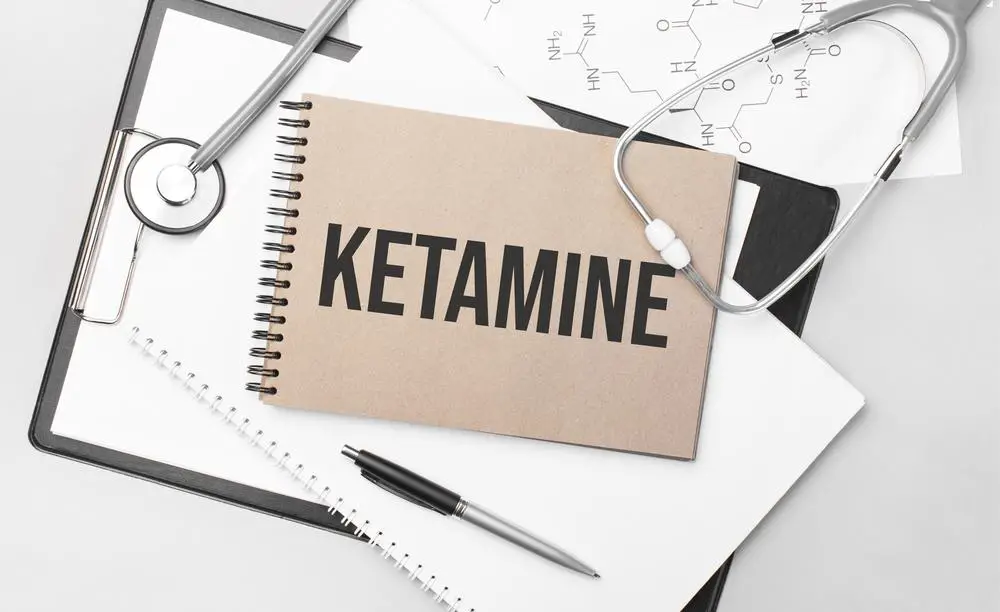
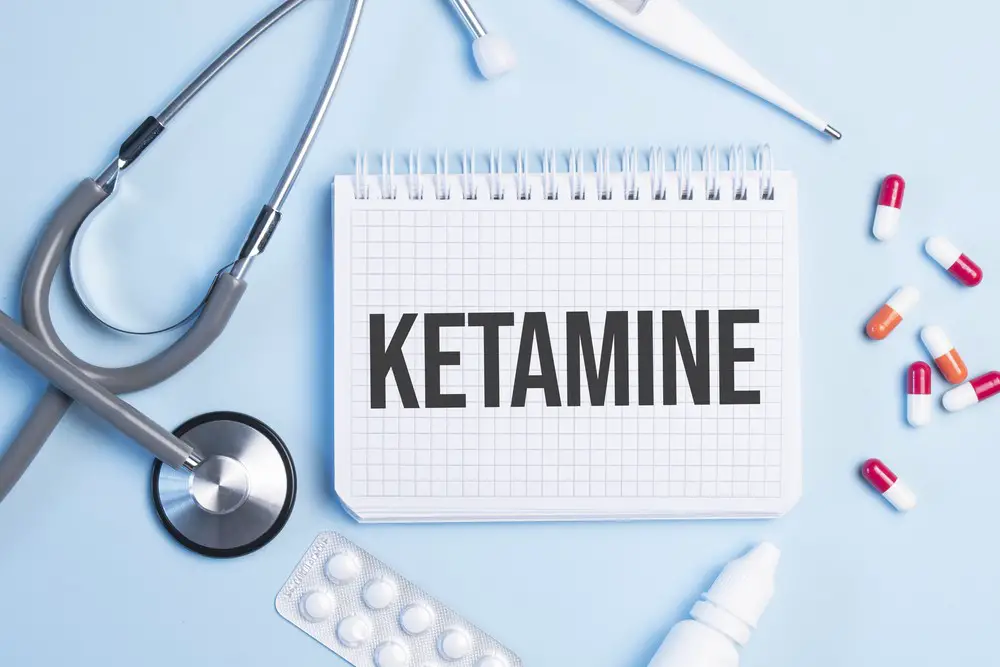 Understanding Ketamine
Understanding Ketamine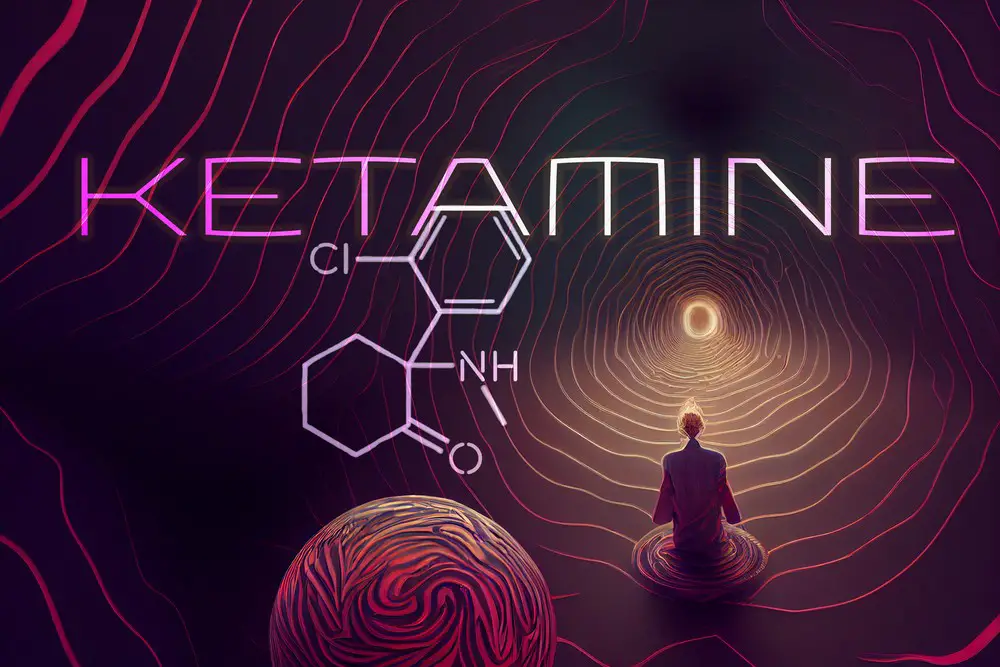 Ketamine Therapy Overview
Ketamine Therapy Overview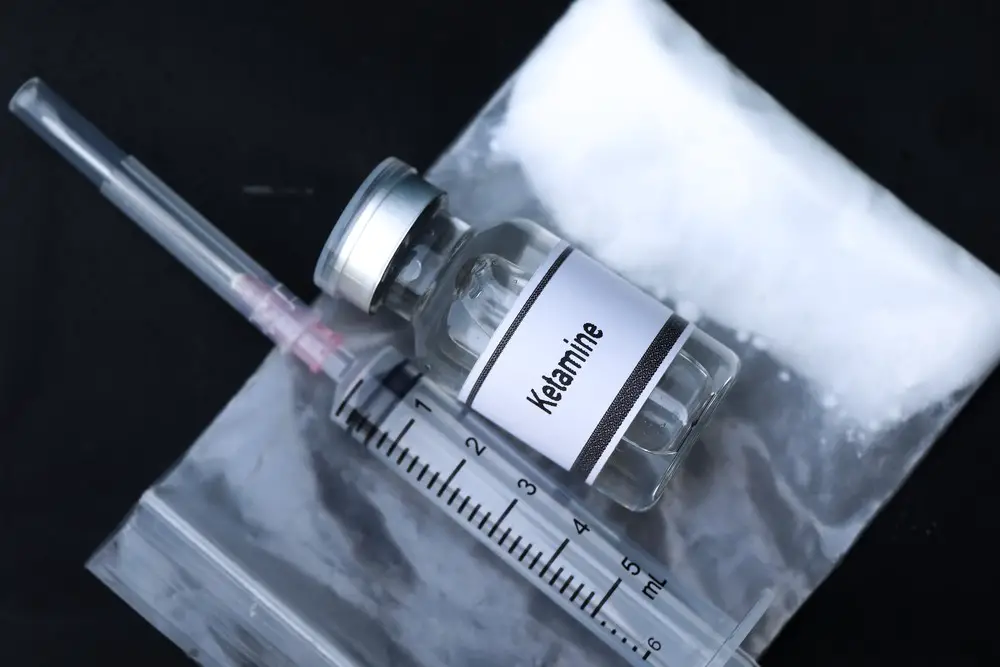 Uses of Ketamine in Therapy
Uses of Ketamine in Therapy Possible Side Effects
Possible Side Effects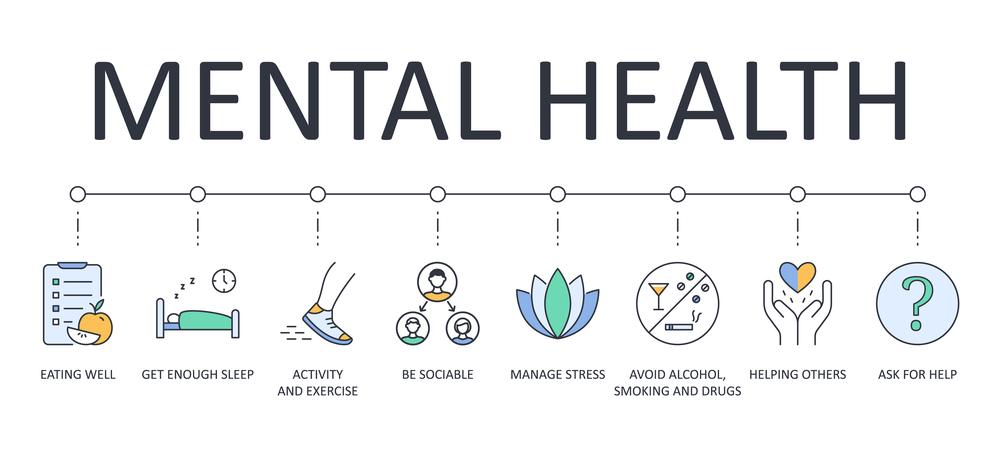 Ketamine in the Context of Mental Health
Ketamine in the Context of Mental Health
